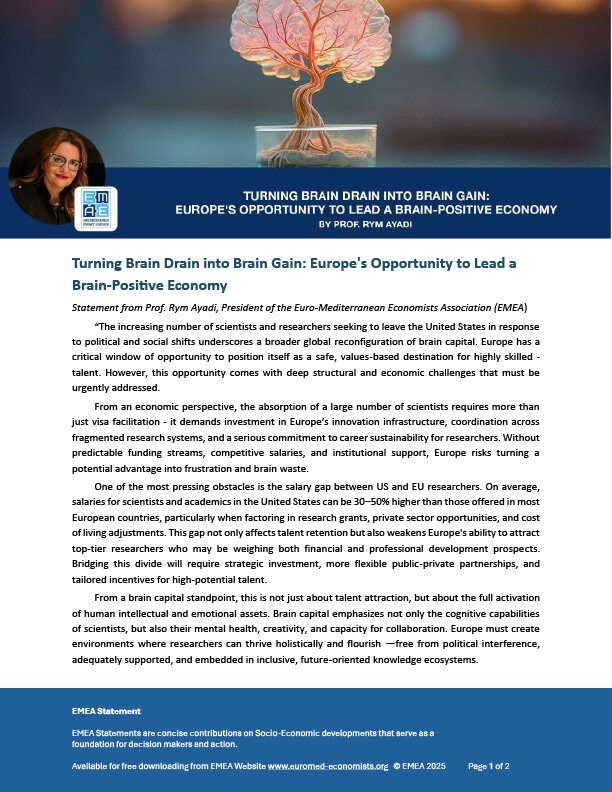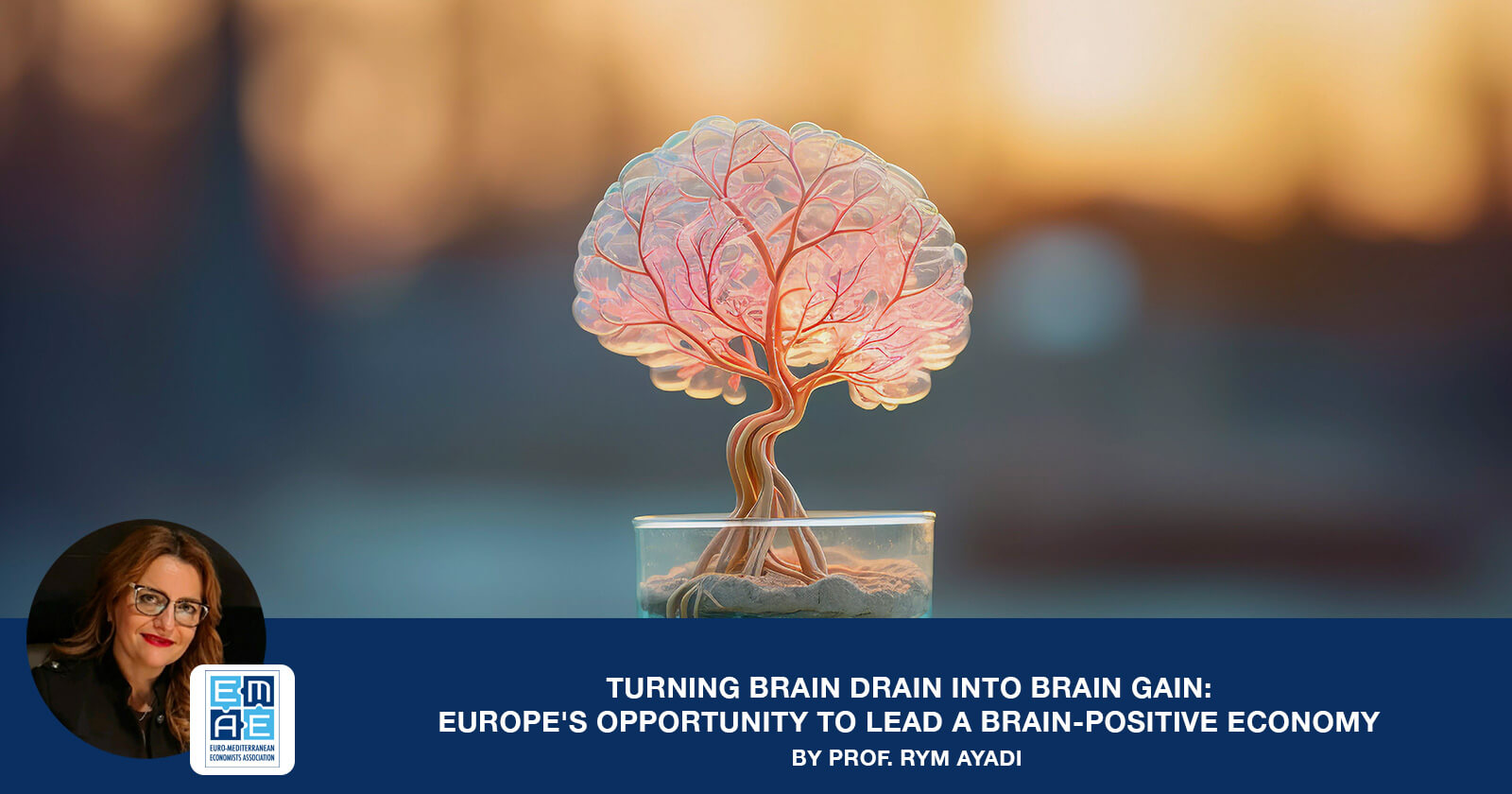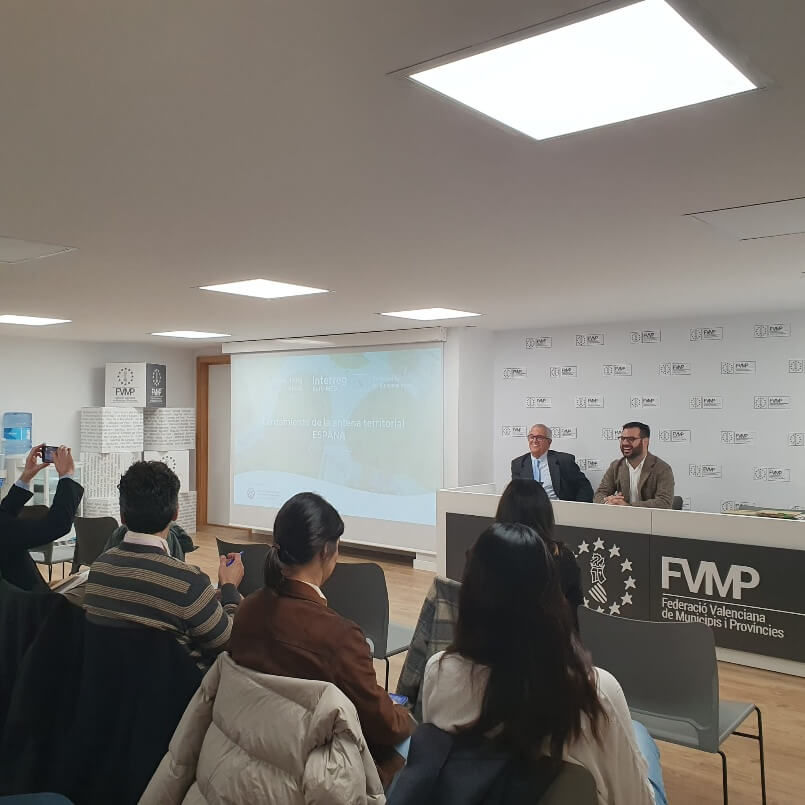Statement from Prof. Rym Ayadi, President of the Euro-Mediterranean Economists Association (EMEA)
“The increasing number of scientists and researchers seeking to leave the United States in response to political and social shifts underscores a broader global reconfiguration of brain capital. Europe has a critical window of opportunity to position itself as a safe, values-based destination for highly skilled – talent. However, this opportunity comes with deep structural and economic challenges that must be urgently addressed.
From an economic perspective, the absorption of a large number of scientists requires more than just visa facilitation – it demands investment in Europe’s innovation infrastructure, coordination across fragmented research systems, and a serious commitment to career sustainability for researchers. Without predictable funding streams, competitive salaries, and institutional support, Europe risks turning a potential advantage into frustration and brain waste.
One of the most pressing obstacles is the salary gap between US and EU researchers. On average, salaries for scientists and academics in the United States can be 30–50% higher than those offered in most European countries, particularly when factoring in research grants, private sector opportunities, and cost of living adjustments. This gap not only affects talent retention but also weakens Europe’s ability to attract top-tier researchers who may be weighing both financial and professional development prospects. Bridging this divide will require strategic investment, more flexible public-private partnerships, and tailored incentives for high-potential talent.
From a brain capital standpoint, this is not just about talent attraction, but about the full activation of human intellectual and emotional assets. Brain capital emphasizes not only the cognitive capabilities of scientists, but also their mental health, creativity, and capacity for collaboration. Europe must create environments where researchers can thrive holistically and flourish —free from political interference, adequately supported, and embedded in inclusive, future-oriented knowledge ecosystems.
Seizing the Opportunity: Towards a Brain-Positive, Knowledge-Based European Economy
If managed strategically, this moment can become a turning point for Europe’s transition toward a truly brain-positive and knowledge-based economy. Welcoming scientists who bring not only technical skills but also fresh ideas and cultural perspectives can revitalize Europe’s innovation capacity across sectors—from health to green technology to digital sovereignty. By investing in brain capital—through education, reskilling programs, mental well-being, collaborative networks, and adaptive institutions—Europe can enhance its economic resilience, social cohesion, and global influence.
In this context, brain capital should be embedded as a cross-cutting dimension of Europe’s long-term strategy. A shift in thinking is required—from seeing researchers as human resources to recognizing them as human capital engines of transformation. This is not just a migration story—it’s a chance to redefine Europe’s place in the global knowledge economy.
Realistically, Europe could establish fast-track programs for displaced or disillusioned scientists, backed by EU and national funding mechanisms. But beyond that, we need a pan-European brain capital strategy: one that links education, reskilling, research, health, and inclusion policies to support long-term human development and economic resilience. This is how Europe can truly transform brain drain into brain gain.”
Related links:
Link to the EMEA Global Brain Capital Dashboard
Empowering the Global Brain Economy: Key Milestones of 2024 and the Road Ahead
Transforming brain health into a strategic investment through brain capital
Building the Future: Brain and Nature Capital as Pillars of a Well-being Economy
Professor Rym Ayadi’s Bio
Professor Rym Ayadi is Founder and President of the Euro-Mediterranean Economists Association (EMEA), a Barcelona based regional Think Tank that serves as a leading independent and innovative policy research institution. Co-Founder of the Brain Capital Alliance and the Brain Economy Hub, and founder and Director of the Euro-Mediterranean and African Network for Economic Studies (EMANES), Professor at the Bayes Business School (Former CASS) of the City University of London and Senior Advisor at the Centre for European Policy Studies (CEPS). She served as the Chair of the European Banking Authority (EBA) Banking Stakeholders Group (BSG) of which she acted as elected Chair from February 2019 to July 2024.
Professor Ayadi is an Economist and international academic expert on international business and financial systems, financial markets and institutions, global financial regulation and governance, and socio-economic development and foresight in economies in transition. She is currently Member in several international high- level Academic, Advisory Committees and Editing Boards. For more information, please visit www.rymayadi.com




